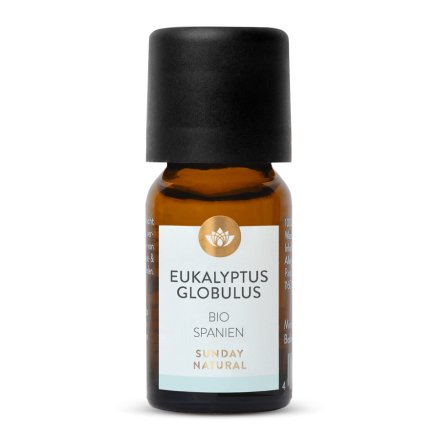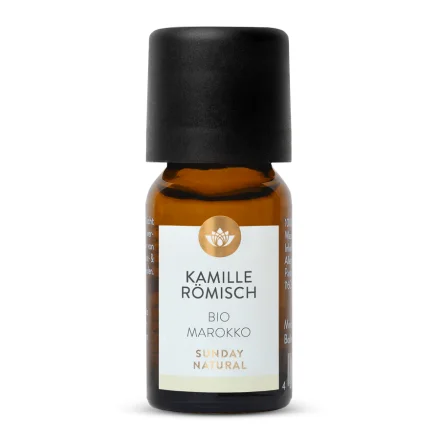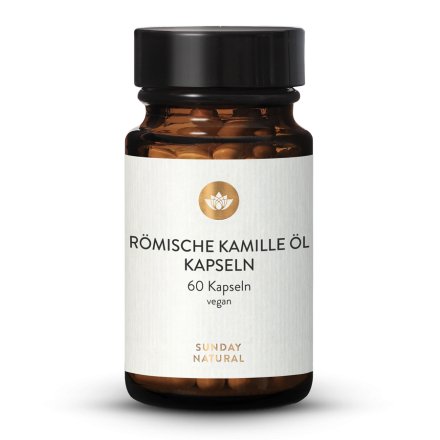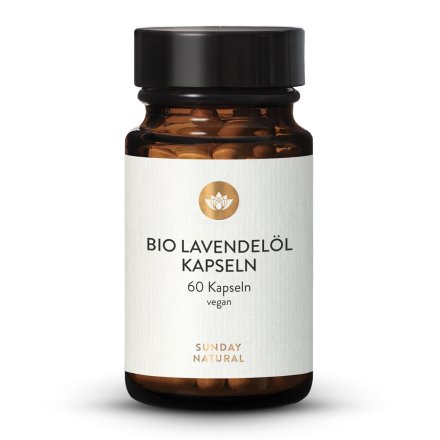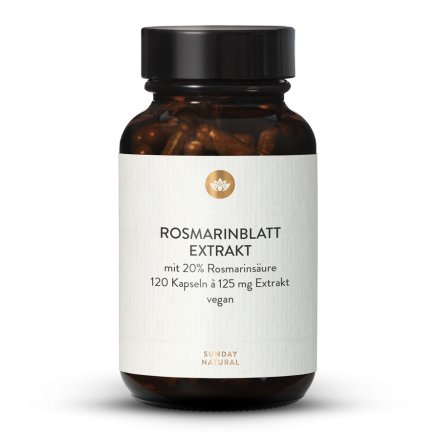- Home
- Aromatherapy
- Essential Oil Capsules
Essential Oil Capsules
Our essential oils in capsule form deliver the valuable phytochemicals of key herbs and spices. The essential oils are embedded in a fibre-rich inulin matrix from chicory, which enables the ingredients to gently pass through the stomach. Our purely plant-based ingredients maintain the highest purity and quality. Also available as 100% natural essential oils in drop form from the world's top cultivation areas, exclusively obtained from aromatic plants, fruits and resins.
Eucalyptus
The eucalyptus tree originates from Australia and is now one of the most frequently planted trees worldwide as a result of its captivating aroma and resilience. Eucalyptus leaves have become a staple in natural remedies and wintertime comforts all over the world thanks to their pleasant fragrance.
-
-
-
-
Natural Full Spectrum
essential oil
€18.81 €19.802x60 capsules
€368.82 / 1kg
Camomile
The intensely aromatic Roman camomile is native to Western Europe, where, it is traditionally used internally.
-
-
-
Natural Full Spectrum
essential oil
€18.81 €19.802x60 capsules
€368.82 / 1kg
English Lavender
-
-
Natural Full Spectrum
essential oil
€18.81 €19.802x60 capsules
€368.82 / 1kg
-
-
Natural Full Spectrum
essential oil
€18.81 €19.802x60 capsules
€368.82 / 1kg
Bay Leaf
In ancient Greece and the Roman Empire, the bay laurel (Laurus nobilis) was strongly associated with the gods. Bay leaves were burned during spiritual cleansing ceremonies and crowns of laurel were presented to victorious warriors after battle. In the Middle Ages, bay leaves were considered a means to ward off evil spirits and curses. To this day, however, the bay laurel is enjoyed as a popular spice to provide aroma and depth of flavour to cooking.
Marjoram
Marjoram (Origanum marjorana), which translates to beauty of the mountain, was attributed to Aphrodite, the goddess of love and beauty, in Greek mythology as well as to Osiris, the god of rebirth and fertility in Egyptian mythology. According to Greek tradition, Aphrodite praised the delicate scent of marjoram flowers as a symbol of happiness with the ability to raise people's spirits.
Clary Sage
-
-
Natural Full Spectrum
essential oil
€18.81 €19.802x60 capsules
€368.82 / 1kg
-
-
Peppermint
Peppermint (Mentha piperita) has been used for ages in cultures around the world for purification rituals, as incense and in the form of calming tea. To help improve concentration, students in ancient times wore a crown of twisted mint and relied on the sweet scent for its stimulating effects.
-
-
Natural Full Spectrum
essential oil
€18.81 €19.802x60 capsules
€368.82 / 1kg
-
Rosemary Flower & Leaf
-
-
Natural Full Spectrum
essential oil
€18.81 €19.802x60 capsules
€368.82 / 1kg
-
20% Rosmarinic Acid
from sustainable cultivation
€6.90120 capsules
€153.33 / 1kg
-
Bundle
from sustainable cultivation
€13.11 €13.802x120 capsules
€145.67 / 1kg
Spike Lavender
The essential oil of spike lavender (Lavandula latifolia spica), also known as broadleaved lavender, has a stronger fragrance than English lavender. Spike lavender buds and leaves have been used since ancient times.
-
-
Natural Full Spectrum
essential oil
€18.81 €19.802x60 capsules
€368.82 / 1kg
-
-
Natural Full Spectrum
essential oil
€18.81 €19.802x60 capsules
€368.82 / 1kg
Thyme
-
-
Natural Full Spectrum
essential oil
€18.81 €19.802x60 capsules
€368.82 / 1kg
-
-
Cinnamon
Lemon Peel
The essential oils in lemon peel are synthesised by the plant to protect the fruits from pests and decay. In Asia, where citrus fruits originated from, these essential oils have been used for ages to refresh and purify the air, to spice food, and to protect against insects.
-
-
Natural Full Spectrum
essential oil
€18.81 €19.802x60 capsules
€330.00 / 1kg
-
-
Cypress
The cypress (Cupressus sempervirens) is respected as a symbol of eternity in Asian cultures. The fruits, branches and wood of cypress trees have been used in traditional herbal medicine for millennia.
Immortelle
-
-
Natural Full Spectrum
essential oil
€18.81 €19.802x60 capsules
€368.82 / 1kg
-
-
Bosnia and Herzegovina
€26.905 ml
€5,380.00 / 1l
Lemon Balm
Lemon balm (Melissa officinalis) is one of the most well-known European plants and was highly valued by Paracelsus. Lemon balm is particularly known for its fresh, citrusy flavours.
-
-
-
Pure Plant Extracts
valerian root & lemon balm leaf
€12.9060 capsules
€299.30 / 1kg
-
Bundle
valerian root & lemon balm leaf
€24.51 €25.802x60 capsules
€284.34 / 1kg



